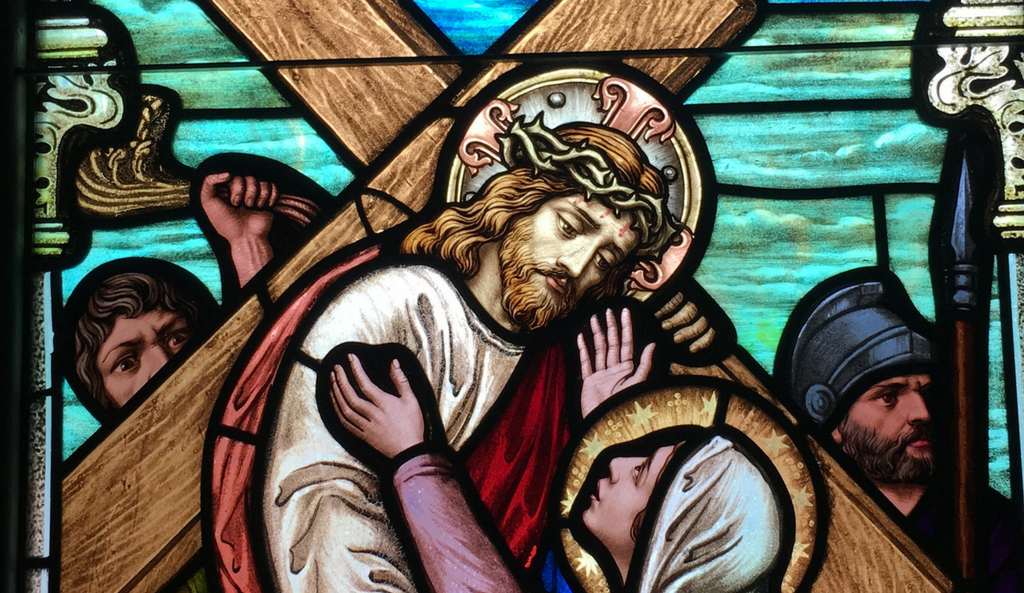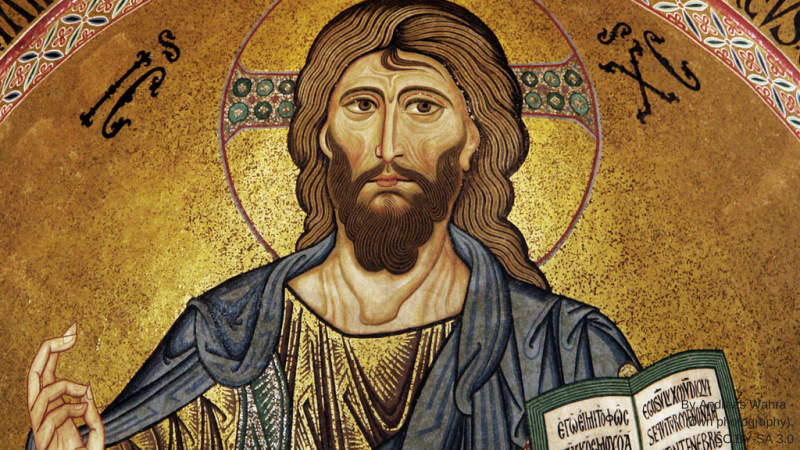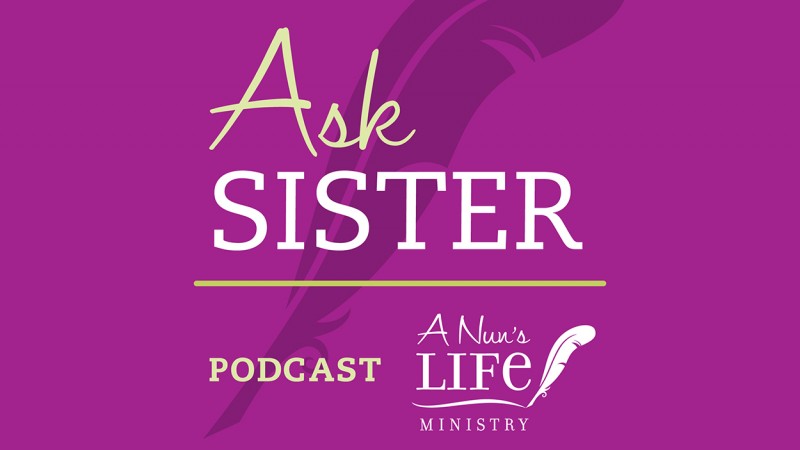
In this Random Nun Clip, we talk with the Racine Dominicans about the Good Friday Walk for Justice. Hear the full Ask Sister podcast episode at AS068.
Link to and example of the social justice Stations of the Cross:
Links mentioned in the podcast:
Let us know your thoughts about the podcast by taking this short survey! Your input helps us shape the future of our podcasts! Click HERE to take the survey. Thank you!
SISTER JULIE: We are happy to be here today with the Sisters of Saint Dominic of Racine Wisconsin, commonly called the Racine Dominicans. We’ve been talking a little bit about it in the chat room and on the blog, about the different parts of Lent and some of our own practices during Lent. So we thought this time around we would talk about the Stations of the Cross. It’s also great to know that there are different ways to do the Stations, especially since we’ve been talking about human trafficking and being aware of the needs of our communities, that we can do it--for example, the Walk for Justice, where the Stations of the Cross help us to tune in not only to walking with Jesus but walking with all who are suffering.
SISTER MAXINE: We want to invite one of the Racine Dominicans to come to the mic and talk about the experience of the Walk of Justice. What I will do is invite you to come up to my chair here.
SISTER JULIE: You get to sit in the power chair, that’s awesome (laughter). Put your ears on sister. Okay. Introduce yourself please.
SISTER ALICE: My name is Sister Alice Radamacher. I first experienced this new way of doing the Stations, I went to the 8th Day Center. That’s the numeral 8, 8th Day Center in Chicago. They do this every year. It’s outdoors. We meet at the corner of Michigan and Congress. You walk for 2 hours. They have different sites. You are led by someone carrying a cross. They have some people behind them like acolytes. They could be for the rights of women. They could be about racism, immigration, against the war, against false imprisonments, torture, lack of housing, different things that are against justice in our world today. The next year we did one here in Racine, Wisconsin. That year, Good Friday was on March 21st. It was a bad snow day, but it turned out wonderful. It’s very ecumenical. We ended up, though, in Saint Luke’s Episcopal Church because it was so snowy out. We had it in the morning from 9 to 11. We had people from ecology, against the war, mental health, education, racism, housing, immigration. We walked down the street. We stopped at these places and it was a whole new way of doing the Stations of the Cross.
SISTER JULIE: What was it like? I did the Chicago one one year and I remember just being in awe about everyone in Chicago still milling about. It happens around noon which is around lunch time, but how did it feel to participate in that walk in the midst of Chicago and Racine going about its daily business not necessarily even knowing what you were doing.
SISTER ALICE: It was just wonderful. First of all, there were about 400 of us in Chicago. Instead of us having to leave the sidewalk, we had police that helped us cross the street when we had to. The people would come to the doors of the stores. We went passed Marshall Field and they moved out of our way instead of us having to move out of their way. It was just beautiful. Being outdoors was wonderful.
SISTER JULIE: So you felt a certain kind of respect from people.
SISTER ALICE: Yes, definitely. They’ve done it there for years.
SISTER JULIE: Okay. Sister Ruth.
SISTER RUTH: I have never seen the one in Chicago but the one in Racine is kind of based on that one in Chicago. At the different Stations, they were actual places, for instance, where housing was being dealt with, the problems of housing. The prayer on that particular Station, folks who were working on housing for the poor. If it was a facility that had something to do mental health and actually had people with mental illness, they would say what they needed and pray for what they needed. That was very, very inspiring. We went to the jail and outside the jail we said the prayers and folks who had been jailed would speak. The problems of our society walked right into the religious practice of our hearts. That really was one of the strongest experiences I ever had for the problems of our society walking right into our hearts with our religious concepts.
SISTER MAXINE: To hear full episodes of A Nun’s Life podcasts, visit the podcast page at anunslife.org/podcasts.
This transcript has been lightly edited for readability.






